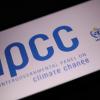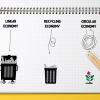The IACC Group leads the development of tools for a new generation of “coupled” global transformation pathways that are able to represent bottom-up local constraints and opportunities at the national and sub-national scale, which is a major focus of the ECE Program.
IACC’s central goal is the development of response strategies and alternative pathways towards a low-carbon economy, taking into account the many linkages to all aspects of society and the environment. For this purpose, the IACC group develops and maintains methods, including the MESSAGEix model which is at the heart of IIASA's Integrated Assessment Modeling framework.
First, the integration of climate change impacts into the IAM framework to account for the main benefits of mitigation, that is, avoided climate change impacts which, in turn, has implications for a wide set of sustainable development objectives. Better understanding how climate impacts will affect different parts of the population, taking into account the aspects of vulnerability and equity and the degree to which affected population segments are able to adapt, will therefore be a key research focus leading to a quantification of the benefits of mitigation beyond simple economic considerations based on monetized impacts.
Second, material cycles are integrated into the IAM framework to broaden the strategy space beyond classic energy- and land-based climate mitigation strategies by including important elements of circular economy approaches. Initially, the focus is on bulk materials such as steel, cement, non-ferrous metals, or plastics, with the aim to also include important critical materials for key low-carbon technologies, such as batteries and fuel cells.
Third, with decision-making support requiring input at different levels - global, regional, national, and subnational - the integration of analysis across different spatial scales is a research focus relevant to all the previously listed topics of the IACC group, requiring further methodological and tool development. Key aspects of this challenge will be, on the one hand, increasing the spatial and temporal granularity of relevant parts of the IAM framework, and on the other, explicitly representing a wider set of policy options, for example, to develop climate action plans at the national or subnational scale.
Finally, IIASA operates a community data hub for global climate change mitigation and transformation pathways, for example, by hosting multiple key datasets for the Intergovernmental Panel on Climate Change (IPCC) and the Integrated Assessment Modeling Consortium (IAMC). These globally-focused efforts are complemented by activities that support the development of national mitigation strategies as well as sector-specific activities such as supporting the finance community in using mitigation scenarios to assess the transition and physical climate change risks of, for instance, investment portfolios.
Models, tools, datasets
Projects
Staff
News

19 June 2024
IIASA at the UNFCCC Bonn Climate Change Conference 2024

05 June 2024
The 2024 State of CDR Report: Scaling up CO2 removal to meet Paris Targets

04 June 2024
Innovative demand strategies for clean energy
Events
Focus
11 November 2023
Empowerment through science

04 October 2023
ENGAGE Summary for Policymakers

Publications
Makowski, M. , Granat, J., Shekhovtsov, A., Nahorski, Z., & Zhao, J. (2024). pyMCMA: Uniformly distributed Pareto-front representation. SoftwareX 27 e101801. 10.1016/j.softx.2024.101801. Forster, P. M., Smith, C. , Walsh, T., Lamb, W. F., Lamboll, R., Hall, B., Hauser, M., Ribes, A., Rosen, D., Gillett, N. P., Palmer, M. D., Rogelj, J. , von Schuckmann, K., Trewin, B., Allen, M., Andrew, R., Betts, R. A., Borger, A., Boyer, T., Broersma, J. A., Buontempo, C., Burgess, S., Cagnazzo, C., Cheng, L., Friedlingstein, P., Gettelman, A., Gütschow, J., Ishii, M., Jenkins, S., Lan, X., Morice, C., Mühle, J., Kadow, C., Kennedy, J., Killick, R. E., Krummel, P. B., Minx, J. C., Myhre, G., Naik, V., Peters, G. P., Pirani, A., Pongratz, J., Schleussner, C.-F., Seneviratne, S. I., Szopa, S., Thorne, P., Kovilakam, M. V. M., Majamäki, E., Jalkanen, J.-P., van Marle, M., Hoesly, R. M., Rohde, R., Schumacher, D., van der Werf, G., Vose, R., Zickfeld, K., Zhang, X., Masson-Delmotte, V., & Zhai, P. (2024). Indicators of Global Climate Change 2023: annual update of key indicators of the state of the climate system and human influence. Earth System Science Data 16 (6) 2625-2658. 10.5194/essd-16-2625-2024. Meinshausen, M., Schleussner, C.-F., Beyer, K., Bodeker, G., Boucher, O., Canadell, J.G., Daniel, J.S., Diongue-Niang, A., Driouech, F., Fischer, E., Forster, P., Grose, M., Hansen, G., Hausfather, Z., Ilyina, T., Kikstra, J. , Kimutai, J., King, A.D., Lee, J.-Y., Lennard, C., Lissner, T., Nauels, A., Peters, G.P., Pirani, A., Plattner, G.-K., Pörtner, H., Rogelj, J. , Rojas, M., Roy, J., Samset, B.H., Sanderson, B.M., Séférian, R., Seneviratne, S., Smith, C. , Szopa, S., Thomas, A., Urge-Vorsatz, D., Velders, G.J.M., Yokohata, T., Ziehn, T., & Nicholls, Z. (2024). A perspective on the next generation of Earth system model scenarios: towards representative emission pathways (REPs). Geoscientific Model Development 17 (11) 4533-4559. 10.5194/gmd-17-4533-2024. Creutzig, F., Simoes, S., Leipold, S., Berrill, P., Azevedo, I., Edelenbosch, O., Fishman, T., Haberl, H., Hertwich, E., Krey, V. , Lima, A., Makov, T., Mastrucci, A. , Milojevic-Dupont, N., Nachtigall, F., Pauliuk, S., Silva, M., Verdolini, E., van Vuuren, D., Wagner, F., Wiedenhofer, D., & Wilson, C. (2024). Demand-side strategies key for mitigating material impacts of energy transitions. Nature Climate Change 10.1038/s41558-024-02016-z. Séférian, R., Bossy, T., Gasser, T. , Nicholls, Z. , Dorheim, K., Su, X., Tsutsui, J., & Santana-Falcón, Y. (2024). Physical inconsistencies in the representation of the ocean heat-carbon nexus in simple climate models. Communications Earth & Environment 5 (1) e591. 10.1038/s43247-024-01464-x.












